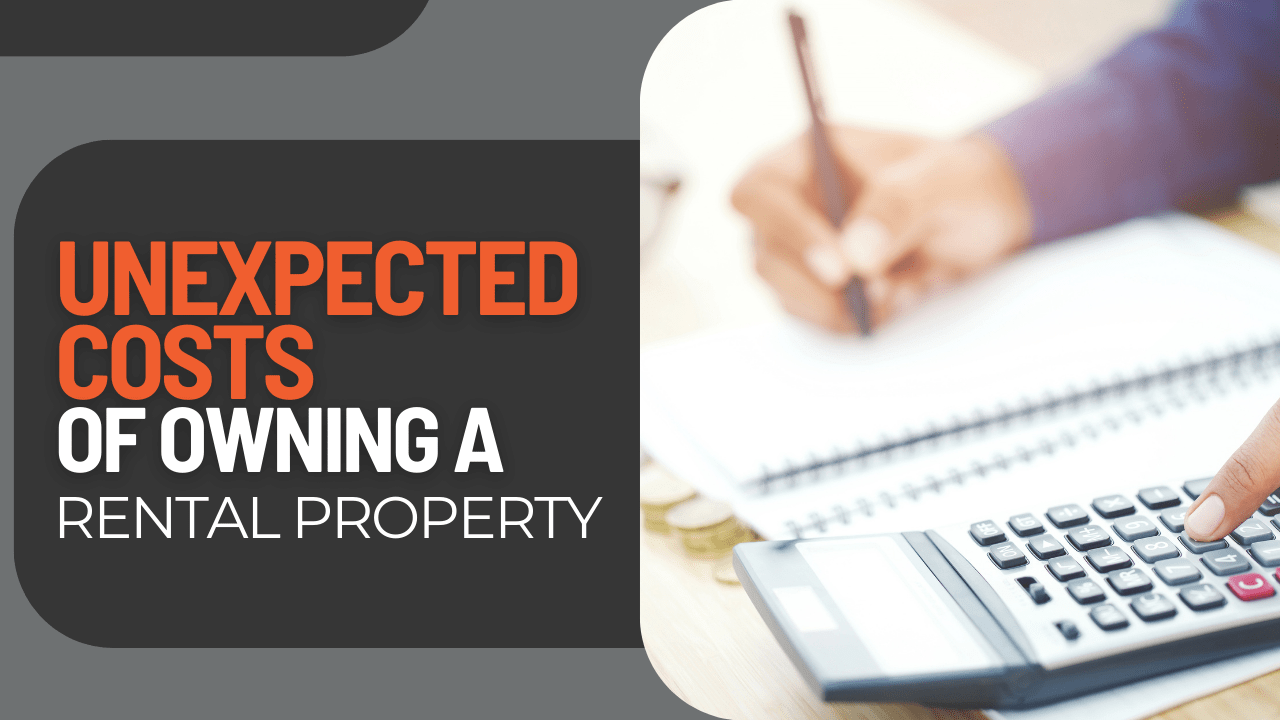
When you are working hard to effectively rent out a Portland investment property, you know that you have to budget for all the costs you expect, such as routine repairs and property taxes. Those fixed and variable costs during the leasing period and the tenancy can be planned because they’re consistent.
Unexpected costs pop up, too, and these can be disruptive when you don’t see them coming.
Being over-prepared is a great way to approach the unexpected costs involved in owning rental property in Portland. We don’t like surprises, either. So, let’s take a look at some of the most common unanticipated costs that Portland real estate investors often run into once they’ve begun renting out their property.
If you need some help budgeting for these costs, we can help with that, too.
Inflation is Unexpected and Expensive
Let’s start with a cost that everyone fears but no one really budgets for higher prices.
Rising inflation has delivered some benefits to rental property owners. Your rental value in Portland is higher, in part because housing prices have risen everywhere. Collecting more rent is a great thing. Spending all that extra money because prices are higher is less great.
Inflation leads to unexpected costs. You might have understood that costs would go up every year; it’s why you raise your rent at renewal time. However, it was probably difficult to plan ahead for inflation this high. Everyone in the Portland rental market is feeling it.
As a property owner, you are paying more for the goods and services that you rely upon to effectively rent out your property.
Insurance prices are going up, and you’re paying more to protect your property.
Maintenance costs are a lot higher now, and you’re paying extra for both labor and materials.
Landscaping services cost more than they did a year or two ago.
Cleaning during turnovers - is pricier.
All of your professional services are higher, whether we’re talking about your CPA or your pest control contract.
These higher price tags were likely unexpected, and you’ve probably had to make some adjustments to accommodate them.
Think about this as you put together your budget for the next three months, six months, and year. Will prices continue to jump as high as they have been? Probably not. However, they’re also unlikely to decrease. So, make sure you’re planning to spend a little bit more than you thought you might.
Vacancy and Turnover Costs can be a Surprise
It’s easy to forget the cost of vacancy.
Ideally, your Portland rental home will be occupied 365 days out of the year. When you manage to retain your tenants for long periods of time, this is exactly what happens, and you benefit financially.
However, it’s unrealistic to believe that your residents will never leave. They will, eventually, even if you’re doing everything you can to provide a great rental experience. You need to plan for those vacancy costs, which is often difficult, because why would you think about your tenants leaving?
Vacancy hurts because it has its own momentum. When your home is empty for one week, you’re losing a couple hundred dollars. When your rental property is vacant for two weeks, you start thinking about the thousands of dollars you’re losing in rent. More than that? Ouch.
It’s easy to feel surprised when your home is empty and you cannot seem to find residents fast enough.
Even more expensive than the loss of rent during a vacancy is the turnover costs.
You have to spend some money preparing the property for new renters, and while this may not be an unexpected cost, it’s quite possible that the cost is far higher than you anticipated.
Usually, turnover costs are even more expensive than vacancy, and the cost of a turnover can be a shock to a property owner. When one tenant moves out, you’ll have to:
Make repairs, whether they’re wear and tear or cosmetic.
Invest in cleaning and preparing the property for your next resident.
Advertise and market the home.
Spend time with showings and tenant screenings.
Expect to have a full month of vacancy between tenants. Even if the vacancy isn’t that long, by budgeting for that time period, you will have more flexibility when you’re making updates and upgrades.
Deferred and Unreported Maintenance
You have likely budgeted for routine repairs, preventative maintenance, and maybe even emergency breakdowns that you know will occur at your Portland rental property from time to time. Maybe you’re setting aside a bit of rent every month or you have a substantive maintenance reserve that you can dip into when something needs to be repaired or replaced.
Maintenance costs are unexpected when they’re deferred or put off. We’ve been managing properties throughout Portland for many years, and we can promise you that no maintenance problem ever got cheaper with time.
It’s easy to be surprised by the cost of those deferred repairs that seem like no big deal.
Don’t wait to make a repair. When a tenant reports that something is wrong, evaluate it right away. It doesn’t take long for a slow drip to become a plumbing disaster. Invest in routine inspections and service calls. Have your HVAC system checked, your roof looked at, and your windows upgraded to hurricane-proof quality panes.
These investments will save you money in the long term. There will be fewer emergency repairs called in and lower expenses overall.
Unexpected Costs: Unqualified Residents and Eviction
A bad resident will cost you a lot of money, and it’s difficult to anticipate having a bad resident in your property.
With a robust screening process and an effort at maintaining good relationships with your tenants, you likely believe that you don’t have to worry about the costs associated with unqualified residents.
Things happen.
If your resident does not perform as expected, you can find yourself dealing with costs such as:
Property damage. You might find more damage than the security deposit covers at the end of a lease term.
Late rent. This will set you back financially and require you to spend more time than you’d like collecting payments.
Unpaid rent. You’ll need to send notices and potentially file for eviction in court.
Lease violations. A pet you didn’t approve of and didn’t collect a pet fee for might tear up your floors or attack a neighbor.
When a tenant is not performing the way you expect them to, you’ll find yourself spending more time and money than you’d like on lawyers, court fees, evictions, maintenance, cleaning, and renovations.
There’s also the dreaded cost of eviction, which will always be more expensive than you anticipate.
Eviction should always be a last resort. Even if you have a difficult tenant who is not paying rent, there may be a way to get them to move out before you have to take them to court. This will save you from the shock of what it actually costs to evict your tenant.
It doesn’t even have to be an eviction to create a sudden and expensive cost for you as a rental property owner. You might have a tenant who does not pay rent for two months and after all your notices and the official filing for eviction, the tenant will move out before it goes to court. That’s still a lot of rent you haven’t been able to collect, and there’s no telling what the property will look like when you get inside.
How Can You be Less Surprised by Portland Rental Property Costs?
 Is there room in your budget to absorb these often-unexpected costs? Here’s what we recommend.
Is there room in your budget to absorb these often-unexpected costs? Here’s what we recommend.
For starters, try to over-budget. When you set aside more money than you’re likely to need, you will rarely be surprised by how much something costs. Saving 10 percent of your monthly rental income for maintenance needs, for example, will help you set up a nice reserve. You probably won’t use that money every month. But, you’ll have it set aside when an unexpected repair shows up. You can use it as a buffer if a vacancy is longer than you expected.
Invest in professional Portland property management. This will help you absorb unexpected costs because property managers anticipate everything. We know when things in your property will need to be repaired or replaced. We know how to distinguish a bad tenant from a good tenant. We have a process in place for evictions, and we can help you budget for inflation.
Finally, try to understand the life expectancy of small things like paint and large things like your roof. When you know how long you can rely on something to last, you can budget for those repairs and replacements over time. Talk to your HVAC service technician, who might tell you that your air conditioning unit is going to last about five more years. When you know that, you can see the large replacement expense coming as you approach year five. Make a budget.
If you’d like some help planning for these hidden costs and surprise expenses, we can talk more about what you’re likely to spend this year, next year, and over the next five or 10 years. Contact us at PropM, Inc. We’re open 365 days a year and seven days a week, and we’re happy to help you with anything pertaining to Portland property management.

